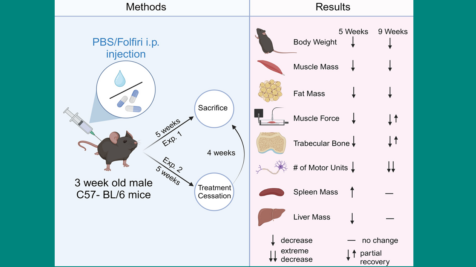A Change of Heart: Novel Cardiac Findings
The Basic Cardiovascular Sciences meeting is held annually across the United States, offering a venue to explore, share, and collaborate on the latest cardiovascular insights. Without missing a beat, ...
2025 Winter/Spring Scientific Conferences and Meetings
The Aurora Scientific team is continuing to journey out and connect with researchers at scientific conferences and meetings all over the world this Winter and Spring! We are particularly thrilled to ...
Hearty Insights: Recent Advances in the Cardiac Field
Coming off the heels of this year’s Basic Cardiovascular Sciences Scientific Sessions (BCVS 2024), the following publication review focuses on an array of cardiac research, ranging from human ...
Spring into Action: Proteins of the Myofilament
In anticipation of the upcoming Myofilament Meeting, April’s publication review covers recent advances in the myofilament field. From the effects of inotropic agents on cardiac myofilament Ca2+ ...
Moving Mountains: Recent Feats in Muscle Physiology
As we March towards the 2024 American Physiology Summit, this month’s publication review covers recent advancements in the realm of muscle physiology, including the development of an improved ...
Tackling the Heart of the Issue: Advances in Cardiovascular Research
February notably marks “Heart Month”, aiming to highlight the importance of cardiovascular health and its critical implications on our overall wellbeing. Tackling the heart of the issue, several ...
2024 Spring/Summer Scientific Conferences and Meetings
The Aurora Scientific team is continuing to journey out and connect with researchers at scientific conferences and meetings all over the world this spring and summer! We are particularly thrilled to ...
Unlocking Heart Health: Revolutionizing Diastolic Function through Integrative Muscle Physiology at Wayne State University
Dr. Charles Chung is an Associate Professor of Physiology at Wayne State University. Using integrated physiology, analyzing data from the molecular level to the whole muscle, his laboratory aims to ...
Renewed Interests: Harnessing Engineered Constructs to Explore Novel Strategies in Regenerative Medicine
Tissue engineering is at the forefront of regenerative medicine, offering immense promise for restoring or enhancing the function of impaired tissues and organs. While tissue constructs remain costly ...
Cut and Paste of Myosin Binding Protein-C in Striated Muscles
Dr. Samantha Harris discusses the development of three new mouse models in her lab, engineered to target and replace specific myosin binding protein-C paralogs in muscle fibers and impact of their ...
Mechanical Control of Relaxation Using Intact Cardiac Trabeculae
Melissa Bukowski and colleagues describe and demonstrate a method to measure mechanical control of relaxation or the strain dependence of muscle relaxation in rodent cardiac ...
Analyzing Cardiac Tissue Function
The following publication review showcases recent studies that use Aurora Scientific equipment to make advances in the field of ...











